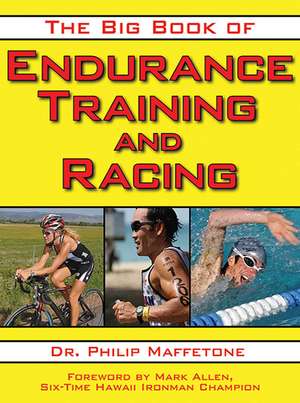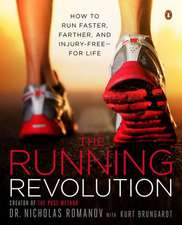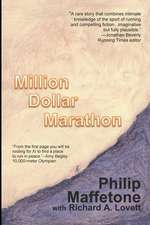The Big Book of Endurance Training and Racing
Autor Philip Maffetone Cuvânt înainte de Mark Allenen Limba Engleză Paperback – 22 sep 2010
Dr. Philip Maffetone’s approach to endurance offers a truly “individualized” outlook and unique system that emphasizes building a strong aerobic base for increased fat burning, weight loss, sustained energy, and a healthy immune system. Good nutrition and stress reduction are also key to this commonsense, big-picture approach.
In addition, Dr. Maffetone dispels many of the commonly held myths that linger in participatory sports—and which adversely impact performance—and explains the “truths” about endurance, such as:
- The need to train slower to race faster will enable your aerobic system to improve endurance
- Why expensive running shoes can actually cause foot and leg injuries
- The fact that refined carbohydrates actually reduce endurance energy and disrupt hormone balance
- And more.
If you are looking to increase your endurance and maximize your athletic potential, The Big Book of Endurance Training and Racing is your one-stop guide to training and racing effectively.
Preț: 91.75 lei
Preț vechi: 150.77 lei
-39% Nou
Puncte Express: 138
Preț estimativ în valută:
17.56€ • 18.28$ • 14.84£
17.56€ • 18.28$ • 14.84£
Carte disponibilă
Livrare economică 21 februarie-05 martie
Preluare comenzi: 021 569.72.76
Specificații
ISBN-13: 9781616080655
ISBN-10: 1616080655
Pagini: 528
Ilustrații: black & white halftones, black & white tables
Dimensiuni: 152 x 229 x 33 mm
Greutate: 0.64 kg
Editura: Skyhorse
Colecția Skyhorse
ISBN-10: 1616080655
Pagini: 528
Ilustrații: black & white halftones, black & white tables
Dimensiuni: 152 x 229 x 33 mm
Greutate: 0.64 kg
Editura: Skyhorse
Colecția Skyhorse
Notă biografică
Philip Maffetone has been a private practitioner, health and athlete coach and consultant, published independent researcher, respected pioneer in the field of complementary sports medicine, and internationally recognized educator and author in the fields of nutrition, biofeedback, exercise physiology, and athletic training over the course of his forty-year career. Since 1977, he has used the term “overfat” and has recommended low-carbohydrate and healthy fat eating.

















